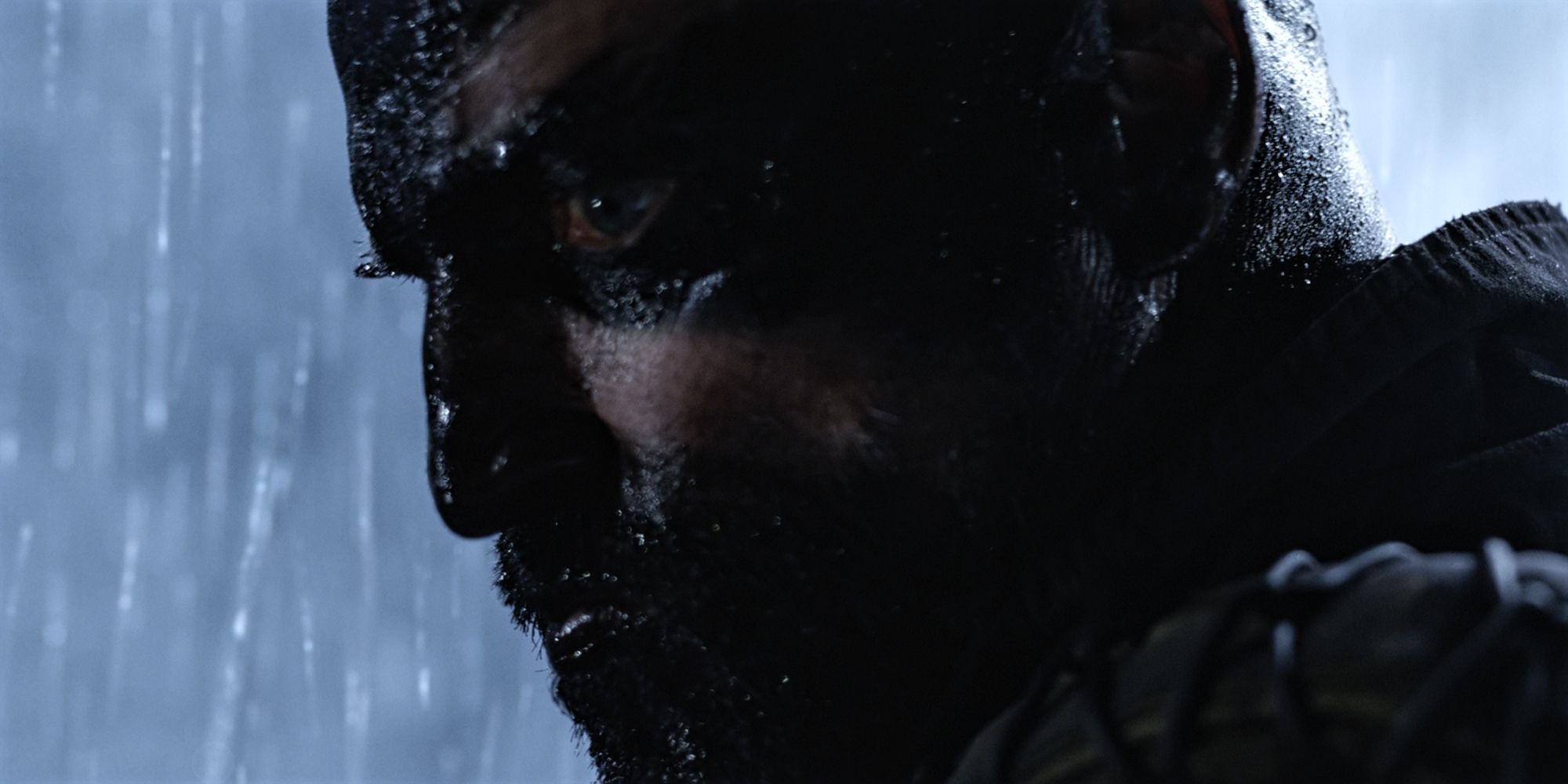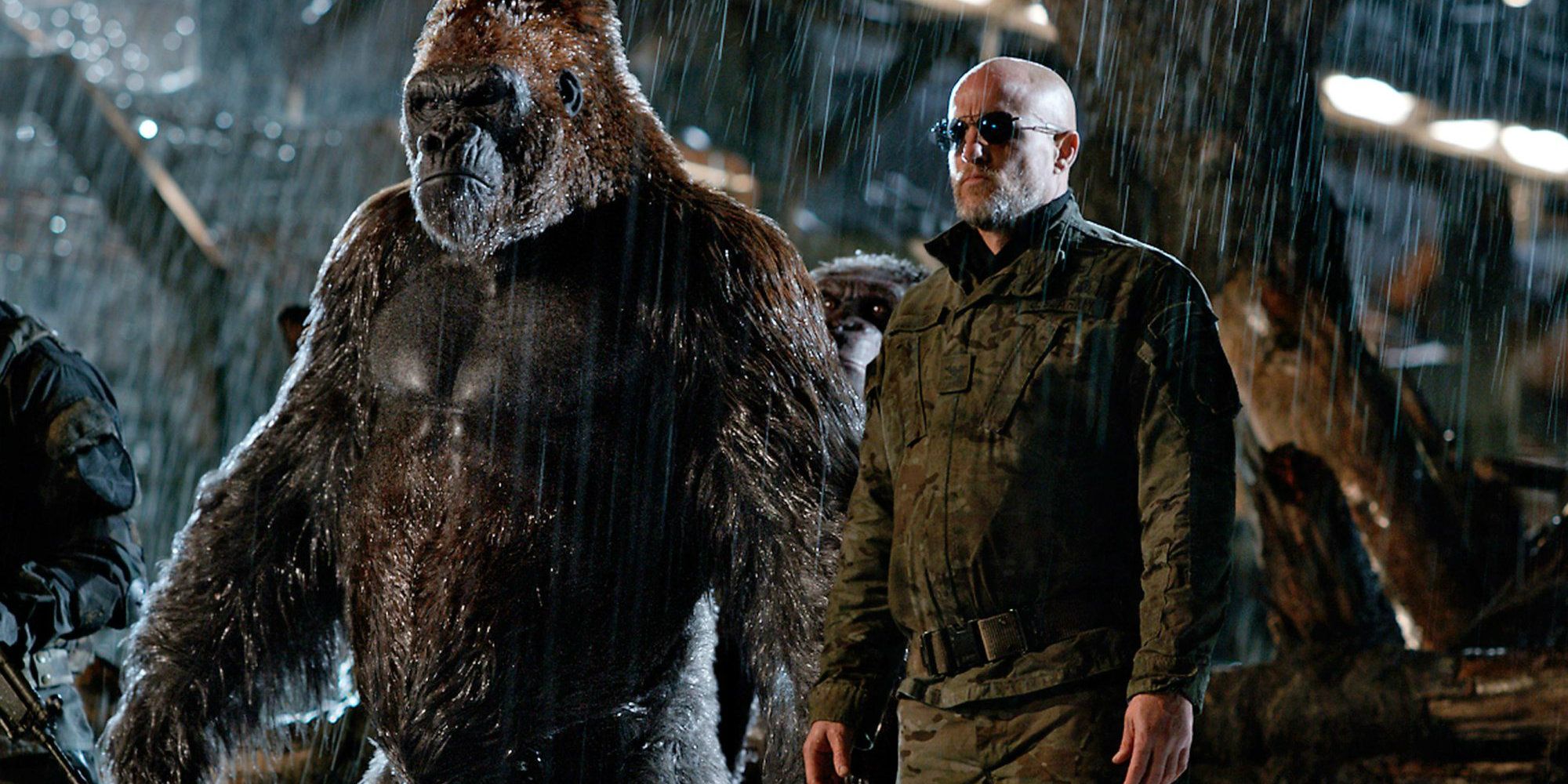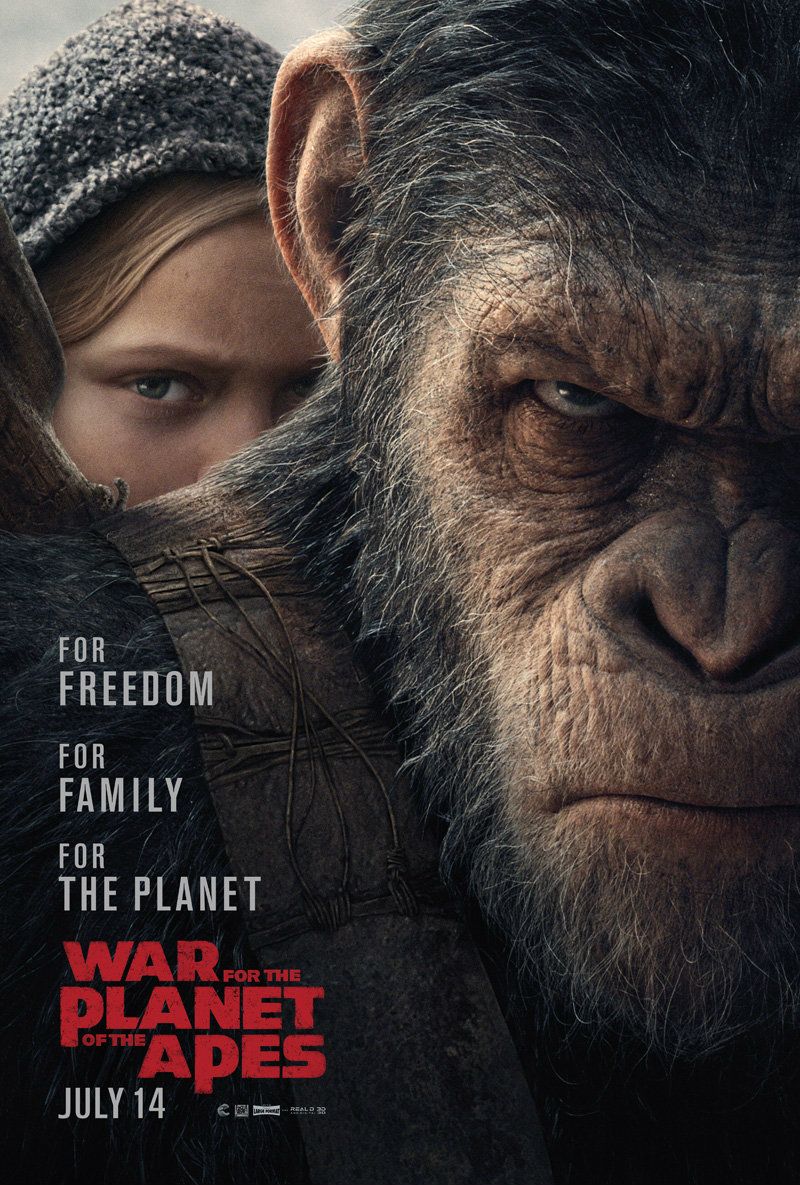In War for the Planet of the Apes, the second entry in the series from director Matt Reeves, humans and apes are both in dire straits. Caesar's (Andy Serkis) group of intelligent apes is facing a harsh winter, made harsher by the ongoing conflict with humanity. Meanwhile, humans have been driven to the brink of extinction by the so-called Simian Flu, and military leader Colonel McCullough (Woody Harrelson) is determined not to go down without a fight.
Though the marketing has touted epic battles between the two species, War of the Planet of the Apes is primarily a POW movie in the vein of The Great Escape, with a heavy dose of Apocalypse Now influence (it even features some graffiti with the quip "Ape-pocalypse Now"). McCullough is certainly a villain, but the movie reveals how and why he was pushed to villainy, and why he has a particular desire to harm the apes.
War for the Planet of the Apes is in theaters now, and Screen Rant got the chance to speak to Harrelson ahead of the movie's release to find out more about the Colonel and his relationship with Caesar. Check out a video of the interview above, and a transcript below.
Do you think there’s something positive about the way the Colonel makes that last stand for humanity?
WOODY HARRELSON: Well, you know I have to look at it from the character’s perspective, so I’d look at it as if he’s doing everything in his power to eliminate apes but because he’s trying to save humanity.
We see that he has an opportunity to kill Caesar early, early on in the movie but chooses not to. What you do think is behind that decision to let him live, so to speak?
WH: I think he comes to appreciate Caesar and to feel this respect for Caesar because: Caesar’s a great leader, Caesar’s highly intelligent, Caesar has the power of speech – well I guess they all have power of speech but he has the power of human speech – and he has some real noble attributes and I think the Colonel finds him fascinating.
Did you look at any particular military leaders for the role when you were preparing for it?
WH: No… just Patton. No, I’m kidding *chuckles*.
We also see another instrumental military character in the movie, Preacher. How would you characterize the Preacher’s relationship with the Colonel, because he’s the second-hand man almost?
WH: Yeah, the Preacher is the right-hand man of the Colonel and he does some things that the audience is not going to appreciate but you can tell that he’s conflicted and that he doesn’t like killing, necessarily. But he does follow the Colonel’s orders, for sure.
Did you get to have a go with the arm-stilts at all? Did you get to try out being an ape, maybe to empathize with the enemy, or not really?
WH: I really wish I had. I’ll probably get another chance at that.
Or you could just steal some arm-stilts and go nuts.
WH: Yeah *laughs*
So what was it like filming with, I imagine it was, mostly mo-cap actors when you were interacting with the apes? Is it very similar to filming with regular actors or different?
WH: Yeah. It takes a little getting used to. You’re not used to people with dots all over their face and they got the mo-cap cameras [hanging from their heads] and funky suits. It takes a little time [to get used to] but then it just becomes normal. You totally get used to it. We adjust to anything.
What was your favorite thing about the script, about the movie? What was your favorite aspect of it?
WH: Well, I mean, it’s very high stakes. It’s pitting the humans against the apes – represented by Caesar, represented by the Colonel. The stakes couldn’t be higher because of the survival of either species. And inside of that there’s all these amazing little subplots going on and I love it because, is there another movie where you come to care about an ape so much that people cry when they’re watching this film? It’s great. It’s really cool.



